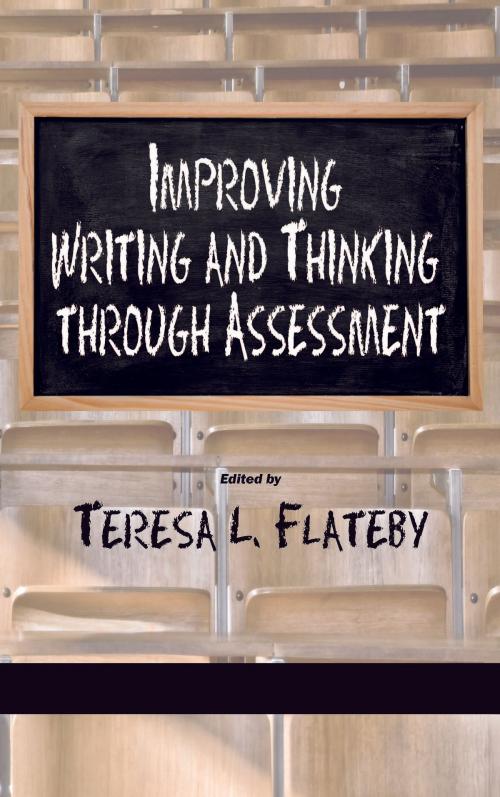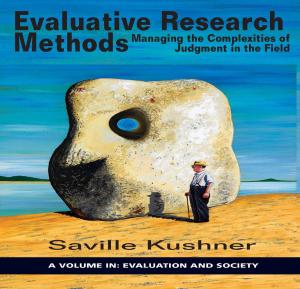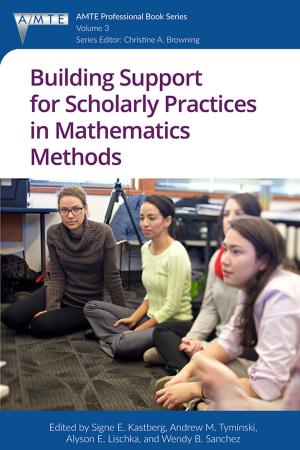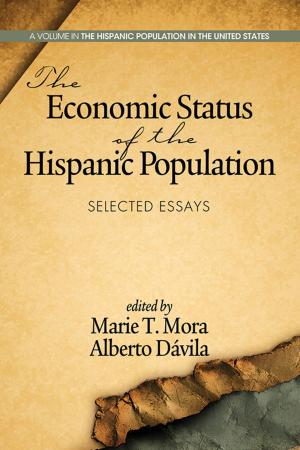Improving Writing and Thinking Through Assessment
Nonfiction, Reference & Language, Language Arts, Public Speaking, Rhetoric, Writing & Publishing, Composition & Creative Writing, Education & Teaching| Author: | ISBN: | 9781607524090 | |
| Publisher: | Information Age Publishing | Publication: | June 1, 2010 |
| Imprint: | Information Age Publishing | Language: | English |
| Author: | |
| ISBN: | 9781607524090 |
| Publisher: | Information Age Publishing |
| Publication: | June 1, 2010 |
| Imprint: | Information Age Publishing |
| Language: | English |
Improving Writing and Thinking through Assessment is designed to help individual faculty and administrators select assessment approaches and measures to maximize their students’ writing and thinking. The book offers useful guidance, through presentation of recommended assessment guidelines and measurement principles in Part 1 and applications from a variety of contributors in Part 2. It addresses a wide range of audiences, including instructors who want to assess and thus foster writing and thinking in their courses, administrators and instructors planning to assess writing and thinking at the program or institutional level, and graduate students interested in improving students’ writing and critical thinking. This book is more guide than a “cookbook.” By providing comprehensive standards and criteria that help individuals or teams develop plans and measures to improve writing and thinking, the book should be helpful for academic and Student Affairs administrators and faculty as the principles apply equally to all engaged in assessment. Contributors, representing a wide range of educators, illustrate many of the approaches and methods described in the theoretical section of the book using a variety of assessment strategies at both classroom and program levels. Readers will see how different types of institutions, both private and public as well as undergraduate and graduate, have designed assessment strategies and plans to gauge and enhance writing and thinking growth in the classroom and across programs. They candidly describe challenges encountered and solutions they adopted or suggest. These chapters reflect approaches and perspectives from various discourse communities including writing program administrators, composition faculty, assessment professionals, and individual faculty representing several disciplines. The author argues the urgent need to develop strong writers and thinkers. She discusses challenges and obstacles, but underscores the necessity for more faculty involvement and institutional commitment. This book will help institutions and individual faculty design and implement sound, meaningful assessment strategies to foster effective writing and thinking that will both advance the goals of the institutional mission and meet faculty’s disciplinary objectives and scholarly concerns.
Improving Writing and Thinking through Assessment is designed to help individual faculty and administrators select assessment approaches and measures to maximize their students’ writing and thinking. The book offers useful guidance, through presentation of recommended assessment guidelines and measurement principles in Part 1 and applications from a variety of contributors in Part 2. It addresses a wide range of audiences, including instructors who want to assess and thus foster writing and thinking in their courses, administrators and instructors planning to assess writing and thinking at the program or institutional level, and graduate students interested in improving students’ writing and critical thinking. This book is more guide than a “cookbook.” By providing comprehensive standards and criteria that help individuals or teams develop plans and measures to improve writing and thinking, the book should be helpful for academic and Student Affairs administrators and faculty as the principles apply equally to all engaged in assessment. Contributors, representing a wide range of educators, illustrate many of the approaches and methods described in the theoretical section of the book using a variety of assessment strategies at both classroom and program levels. Readers will see how different types of institutions, both private and public as well as undergraduate and graduate, have designed assessment strategies and plans to gauge and enhance writing and thinking growth in the classroom and across programs. They candidly describe challenges encountered and solutions they adopted or suggest. These chapters reflect approaches and perspectives from various discourse communities including writing program administrators, composition faculty, assessment professionals, and individual faculty representing several disciplines. The author argues the urgent need to develop strong writers and thinkers. She discusses challenges and obstacles, but underscores the necessity for more faculty involvement and institutional commitment. This book will help institutions and individual faculty design and implement sound, meaningful assessment strategies to foster effective writing and thinking that will both advance the goals of the institutional mission and meet faculty’s disciplinary objectives and scholarly concerns.















